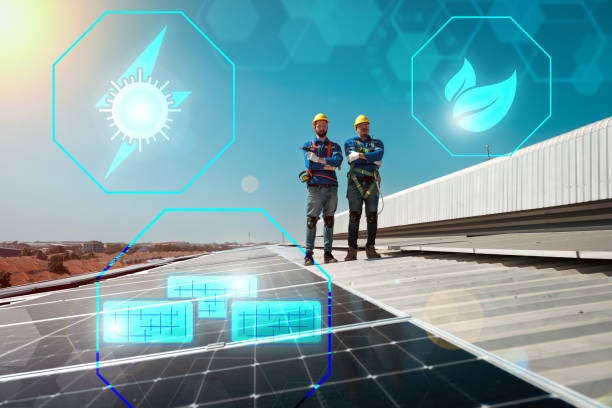
Sustainability is no longer a buzzword—it’s a necessity. As climate change, resource depletion, and pollution threaten our planet, technology is stepping in to provide innovative solutions. From clean energy to smart agriculture, groundbreaking tech innovations are transforming the way we live, work, and interact with our environment.
In this article, we’ll explore the top technological advancements that are shaping the future of sustainability, making the world a greener, cleaner, and more efficient place.
1. Renewable Energy Advancements
Solar Power Efficiency
Solar energy has long been a key player in sustainability, but new advancements are making it even more efficient. Innovations like perovskite solar cells, floating solar farms, and solar skins are increasing energy output while reducing costs. These technologies ensure that more households and businesses can transition to renewable energy without breaking the bank.
Next-Generation Wind Energy
Modern wind turbines are becoming more powerful and efficient. Vertical-axis wind turbines, offshore wind farms, and AI-driven wind energy optimization are revolutionizing the way we harness wind power. With improvements in energy storage, wind power is now a more reliable and consistent energy source.
Hydrogen Fuel and Green Energy Storage
Hydrogen is emerging as a clean energy alternative, especially for industries that require high energy consumption, such as manufacturing and transportation. Green hydrogen, produced using renewable energy, is paving the way for a fossil-fuel-free future.
2. Smart Cities and Sustainable Urban Planning
Energy-Efficient Buildings
Green architecture is redefining urban living. Smart buildings now use AI-driven systems to optimize lighting, heating, and cooling, reducing overall energy consumption. Materials like self-healing concrete, carbon-negative cement, and 3D-printed structures are making construction more sustainable.
IoT-Powered Smart Grids
The Internet of Things (IoT) is revolutionizing energy distribution with smart grids. These networks analyze energy consumption in real time, reducing waste and preventing blackouts. Smart grids also enable homes and businesses to feed excess energy back into the system, promoting energy efficiency.
Eco-Friendly Transportation
Electric vehicles (EVs) are becoming more advanced, with longer battery life, faster charging, and autonomous driving capabilities. Public transport is also going green, with electric buses, high-speed trains, and bike-sharing programs reducing urban carbon footprints.
3. Artificial Intelligence (AI) for Sustainability
AI-Driven Climate Modeling
AI is helping scientists predict climate changes with greater accuracy. Advanced algorithms analyze massive datasets to forecast extreme weather events, enabling better disaster preparedness. AI-driven climate modeling also aids in conservation efforts, helping to protect endangered ecosystems.
Precision Agriculture
Agriculture is one of the largest contributors to environmental degradation, but AI is making farming more sustainable. Precision agriculture uses sensors, drones, and AI-driven data analytics to optimize water usage, reduce pesticide use, and increase crop yields. This ensures food security while minimizing environmental impact.
AI-Powered Waste Management
Waste is a global issue, but AI-powered waste sorting and recycling systems are improving efficiency. Smart bins, robotic recycling, and AI-driven logistics are reducing landfill waste and promoting a circular economy.
4. Blockchain for Transparency in Sustainability
Supply Chain Transparency
Blockchain technology is enhancing transparency in supply chains, ensuring that products are ethically sourced and sustainably produced. Consumers can now track the origin of goods, from raw materials to finished products, reducing greenwashing and unethical practices.
Carbon Credit Trading
Blockchain is also being used to create more transparent and efficient carbon credit trading systems. This enables businesses to offset their carbon footprints in a verifiable manner, encouraging more industries to adopt sustainable practices.
5. Biodegradable and Sustainable Materials
Plant-Based Plastics
Traditional plastics are a major environmental threat, but plant-based plastics are emerging as a viable alternative. Innovations in bioplastics, such as those made from algae, cornstarch, and seaweed, are reducing plastic pollution without sacrificing durability.
Lab-Grown Meat and Sustainable Food Production
The meat industry is one of the largest contributors to greenhouse gas emissions. Lab-grown meat and plant-based alternatives like Beyond Meat and Impossible Foods are offering sustainable protein options without harming the environment.
Water Purification and Desalination Tech
Access to clean water is a global challenge, but new water purification technologies are making it easier to provide safe drinking water. Innovations like graphene filters, solar-powered desalination, and AI-driven water management are ensuring sustainable water usage worldwide.
Conclusion: A Tech-Driven Sustainable Future
The future of sustainability is being shaped by technology. From AI-powered climate modeling to renewable energy breakthroughs, these innovations are paving the way for a greener and more efficient world. Governments, businesses, and individuals all have a role to play in embracing these technologies and making sustainable choices.
At TechAfri, we’re committed to keeping you updated on the latest tech trends that are driving positive change. Stay tuned for our next article, where we’ll explore how AI is transforming cybersecurity and making the digital world safer.
Would you like to see more insights on sustainable tech? Let us know in the comments!

